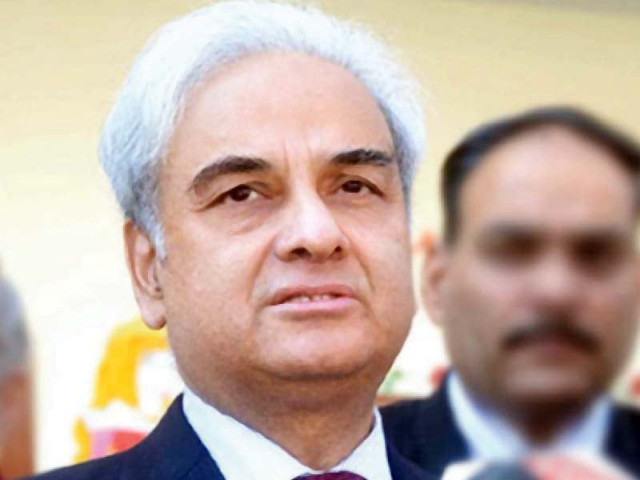Military court sentences: SC seeks case record of six convicts
Full-bench hears petitions against the 21st amendment

Nasirul Mulk. PHOTO: FILE
The top court has sought the case record of six militants sentenced to death by military courts – a month after issuing a stay order against their execution.
The Supreme Court judges expressed their intention to examine the trial proceedings of the six convicts while hearing petitions against the 21st constitutional amendment on Tuesday.
Justice Asif Saeed Khosa asked Attorney General (AGP) Salman Aslam Butt if he could provide the record for examination of the entire trial process at the military court.
The AGP responded the procedure about the military courts’ functioning had been already submitted in the apex court.
However, Justice Qazi Faez Isa replied the judges could not find that record.
Another senior law officer observed it was difficult for the federal government to provide the whole record to the apex court. Justice Khosa had earlier observed that reportedly the death sentences awarded by military courts were approved by the Chief of Army Staff. Though the appeal before the appellate forum was provided in the army act, how could army officers sitting in the appellate go against the COAS, he questioned.
He said it was wrong to blame the judiciary regarding the prosecution of terrorists, adding a parallel judiciary had been formed on the basis of the Peshawar school attack.
Chief Justice Nasirul Mulk, who heads the 17-member full bench, questioned whether or not the 21st amendment had given protection to the military courts.
Hamid Khan, appearing on behalf of the Lahore High Court Bar Association (LHCBA), argued the military courts were required to meet the minimum standards, which were not provided in the amendment.
He contended if the court accepts the military court, even then it has to see the minimum standards of fair trial are followed. There can’t be a separate system of courts as the constitution does not allow parallel courts, he added.
Justice Saqib Nisar commented that in view of the security situation in the country, Operation Zarb-e-Azb was launched and people were killed and the soldiers martyred and some people were arrested. He questioned if those arrested people were tried in the court, then who would testify against them. “What is the solution?” he asked, adding if those killed in the operation were really enemy combatants.
Justice Khosa said it was decided to establish special courts led by army officers but the executive went beyond its mandate.
LHCBA’s Khan contended that arresting criminals, investigation and their prosecution was the duty of the executive and if it does not perform them, then it could not blame the judiciary.
The counsel termed the 21st Amendment a “reactive” law. He argued that fundamental rights could not exist if there were no independent courts.
Hamid Khan said serving army officers could not adjudicate the cases independently.
Formation of military courts was agreed by political parties under the revised anti-terror policy, National Action Plan, formulated in December 2014 after the Peshawar school massacre. Parliament amended the constitution and the army act to establish military courts for a period of two years.
The hearing will resume today (Wednesday).
Published in The Express Tribune, June 17th, 2015.



















COMMENTS
Comments are moderated and generally will be posted if they are on-topic and not abusive.
For more information, please see our Comments FAQ